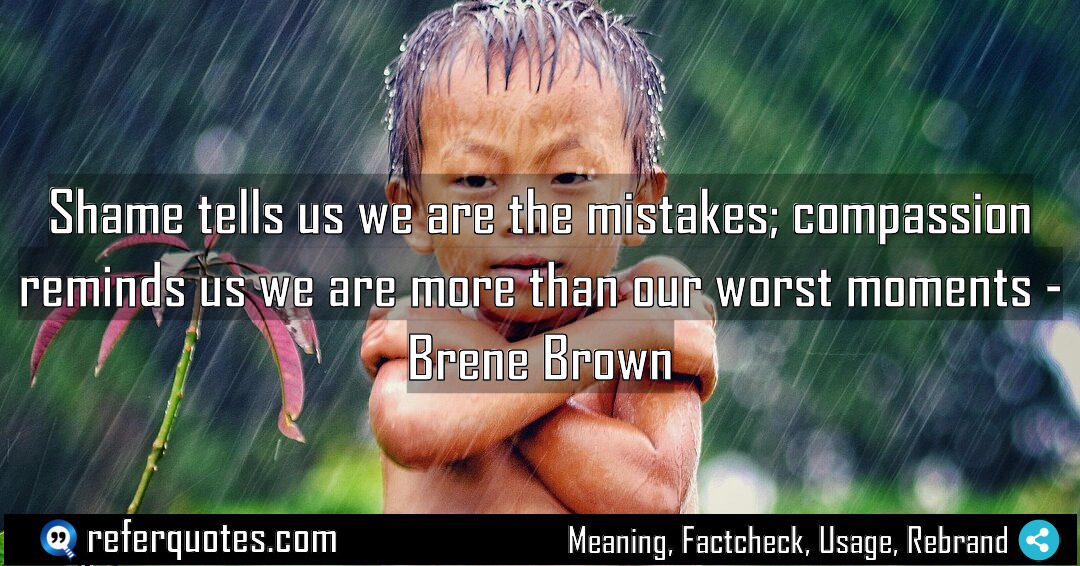You know, “Shame tells us we are the mistakes” is one of those lines that just stops you. It’s about the fundamental difference between feeling bad about what you did versus who you are. A real game-changer for how we handle our own slip-ups and those of others.
Share Image Quote:Table of Contents
Meaning
At its core, this quote is about identity. Shame makes a behavior part of your identity, while compassion allows you to see it as just a single event.
Explanation
Let’s break this down. Shame is this incredibly heavy, sticky emotion. It doesn’t just say “You made a bad choice.” It whispers, “You *are* a bad choice.” It’s globalizing. It takes one moment, one failure, and paints your entire self-concept with it. Compassion, on the other hand—and I’m talking about self-compassion here, which is the real tough one—acts like a solvent. It gently separates the action from the actor. It reminds you that you are this complex, evolving person with a history of good moments, too. It’s the voice that says, “Okay, that was a mess. You’re better than that. Let’s figure out why it happened and learn from it.” It’s the difference between being the storm and just being in one.
Quote Summary
| Context | Attributes |
|---|---|
| Original Language | English (3668) |
| Category | Wisdom (385) |
| Topics | identity (102), mistakes (7) |
| Literary Style | didactic (370) |
| Emotion / Mood | gentle (183), reassuring (55) |
| Overall Quote Score | 73 (94) |
Origin & Factcheck
This comes straight from Brené Brown’s 2004 book, Women & Shame: Reaching Out, Speaking Truths. It’s a foundational concept from her early research, long before she became a household name with her TED Talk. You sometimes see similar sentiments floating around, but this phrasing is uniquely and definitively hers.
Attribution Summary
| Context | Attributes |
|---|---|
| Author | Brene Brown (257) |
| Source Type | Book (4032) |
| Source/Book Name | Women & Shame: Reaching Out, Speaking Truths (39) |
| Origin Timeperiod | 21st Century (1892) |
| Original Language | English (3668) |
| Authenticity | Verified (4032) |
Author Bio
Dr Brene Brown is the author of books such as Daring Greatly and The Power of Vulnerability. The TED talk and Netflix production based on her research reached out to millions of audience. She researches effects of courage and vulnerability in shaping people's work and relationships. She leads the Brené Brown Education and Research Group and provides evidence-based insights into practical tools to help people train themselves
Official Website |Facebook | X | Instagram | YouTube |
Where is this quotation located?
| Quotation | Shame tells us we are the mistakes; compassion reminds us we are more than our worst moments |
| Book Details | Publication Year: 2004; (other edition details unknown) |
| Where is it? | Approximate page from 2004 Hazelden edition, Chapter: Worthiness |
